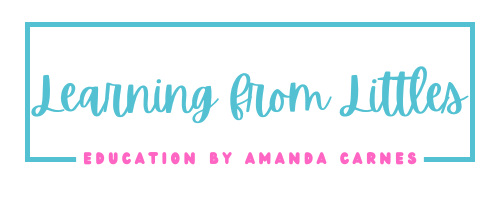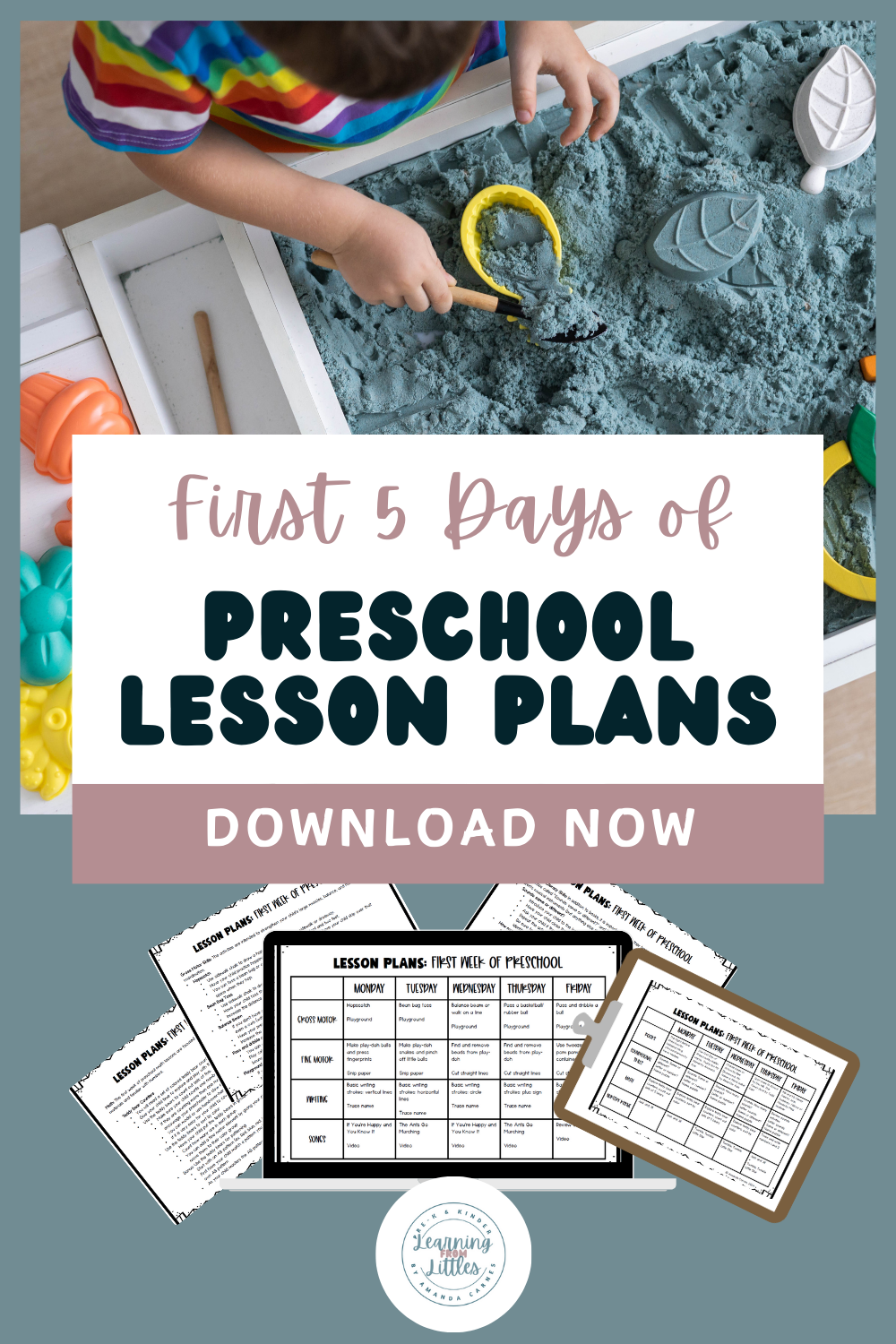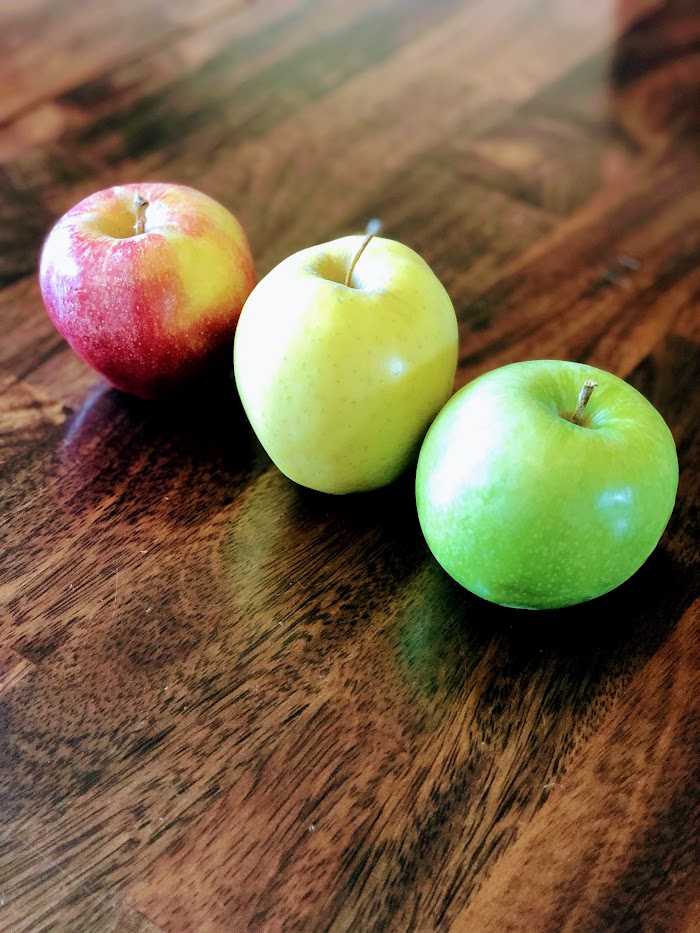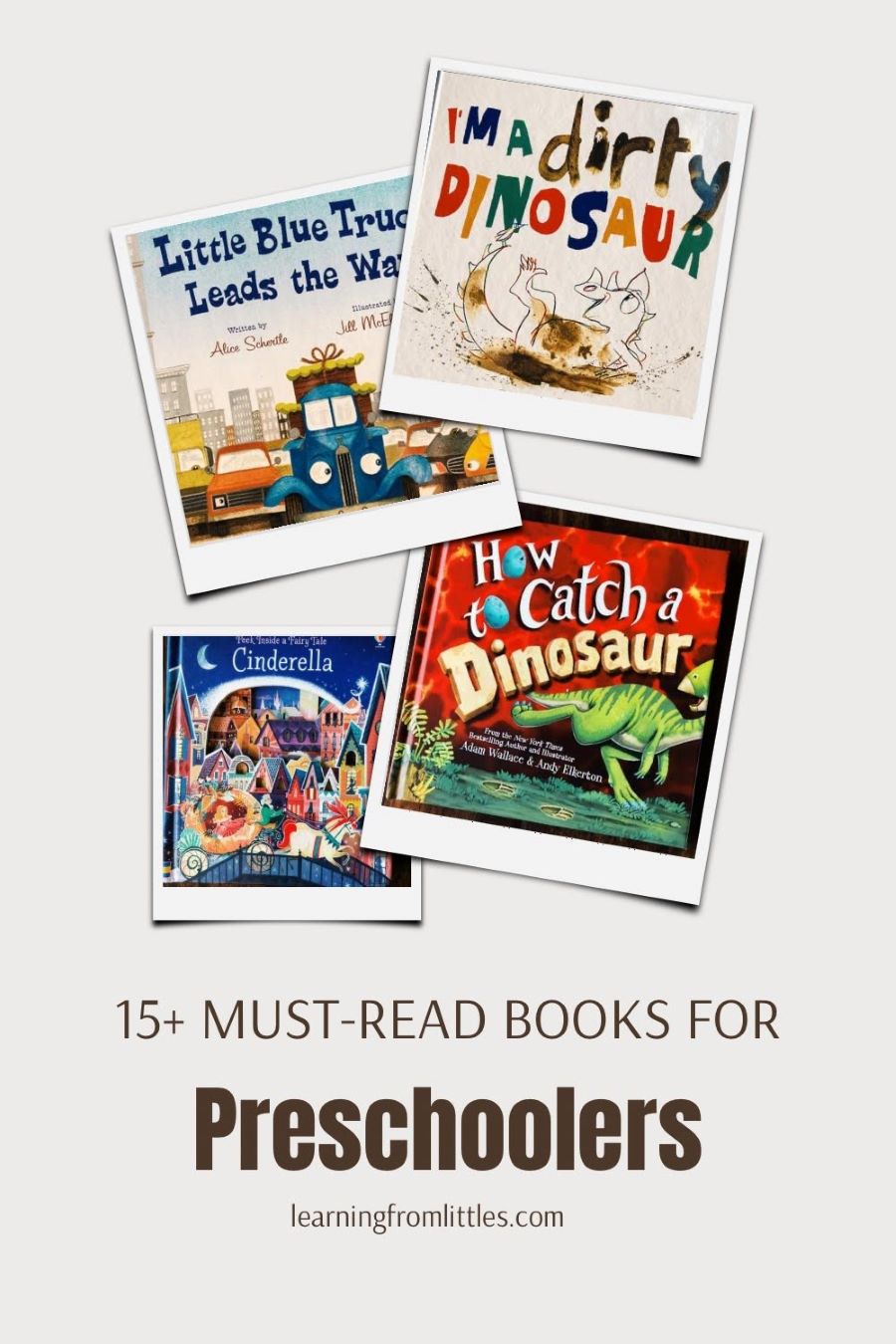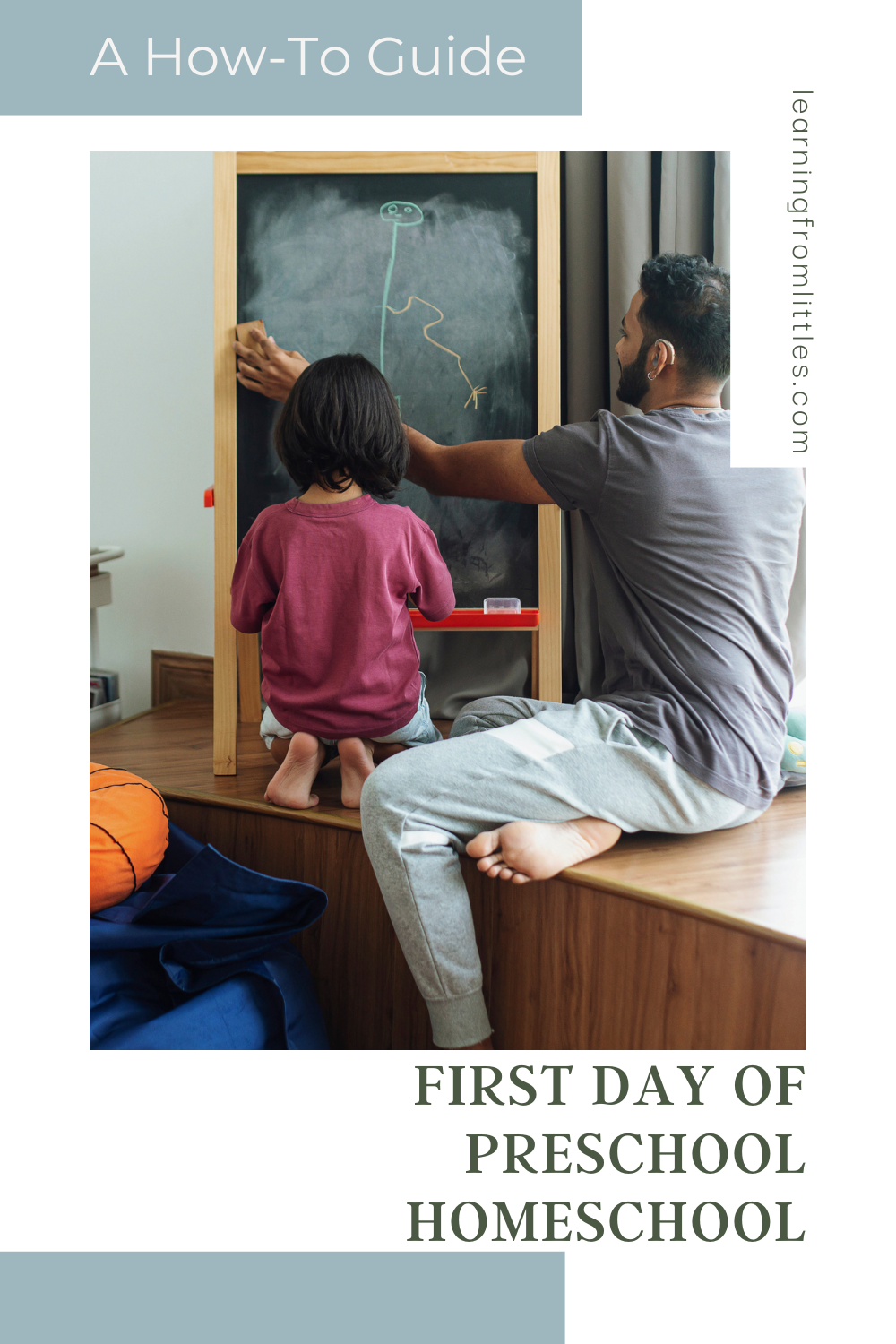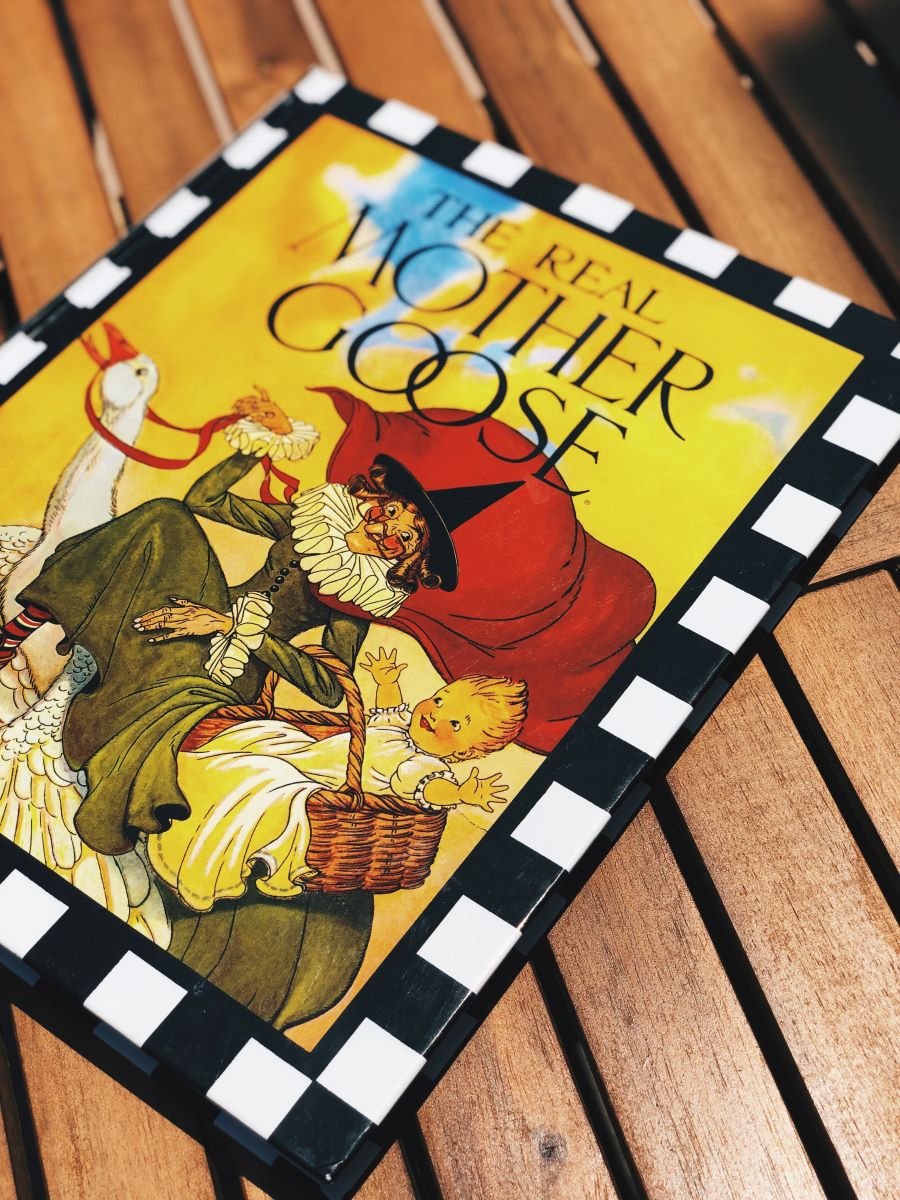A Simplified Preschool Lesson Planning Process for Teachers and Parents, Part 2
Welcome to part 2 of the Simplified Preschool Lesson Planning Process! Here we dig into the nitty gritty of lesson planning.
If you missed part 1, be sure to check that out here.
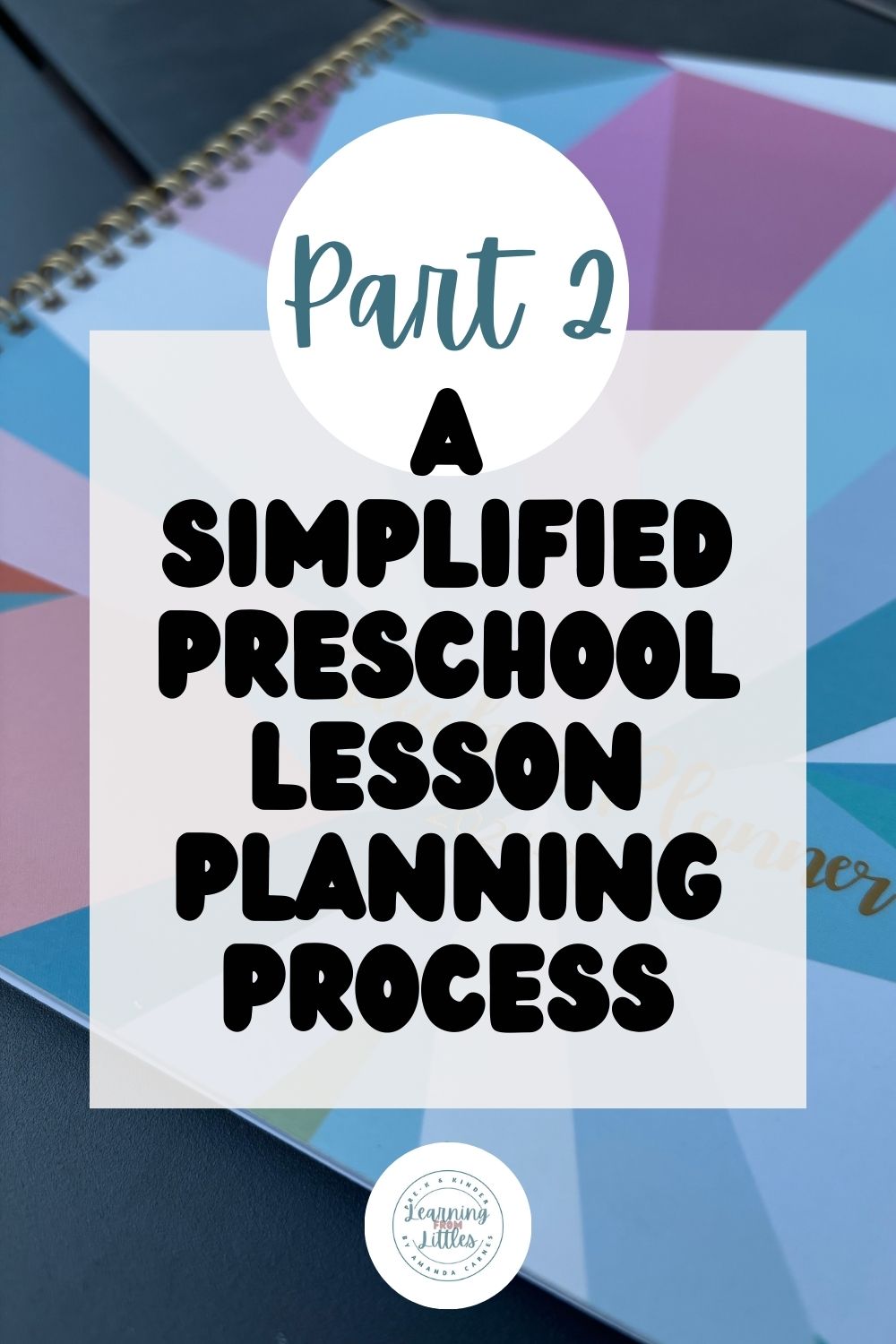
In this post:
- What content and development areas to plan for
- How to plan lessons that are engaging AND effective
- The resource that will easily jumpstart your preschool lesson planning process for the year
Grab the First 5 Days of Preschool Lesson Plans now!
Areas of development for preschool lesson planning
Preschool is not just learning letters and numbers! Here are some areas of development to consider when planning lessons for preschool.
Literacy
- Phonological and phonemic awareness (click here to work on these skills with nursery rhymes)
- Phonics
- Vocabulary
- Book and print concepts
- Word recognition
- Speaking and listening skills
Math
- Number identification (get a number recognition routine HERE and a game HERE)
- Counting
- Classifying and sorting
- Patterning
- Problem solving
Writing
- Drawing to share ideas
- Drawing to answer questions or show understanding of topics
- Dictating a sentence about a drawing for an adult to write
- Using knowledge of letters and sounds to mimic sentence writing
Fine Motor
- Building finger, hand, and wrist muscles and control
- Being able to manipulate small objects
- Gripping objects and tools (crayons, tongs, small shovels, paintbrushes, etc.)
- Controlling writing utensils
- Using scissors
Gross Motor
- Running
- Jumping
- Kicking
- Throwing
- Crawling
- Climbing
- Pulling
- Pushing
Social Emotional Learning
- Understanding and recognizing emotions
- Controlling emotions
- Turn taking and sharing
- Conversing with others
- Conflict resolution
PLAY!!!
A child’s most important work is to PLAY!!! When you are preschool lesson planning be sure to provide ample opportunities for uninterrupted play.
You can set up areas or centers devoted to these types of play:
- Blocks
- Dramatic play
- Library or literacy center
- Art
- Music and movement
- Science and discovery
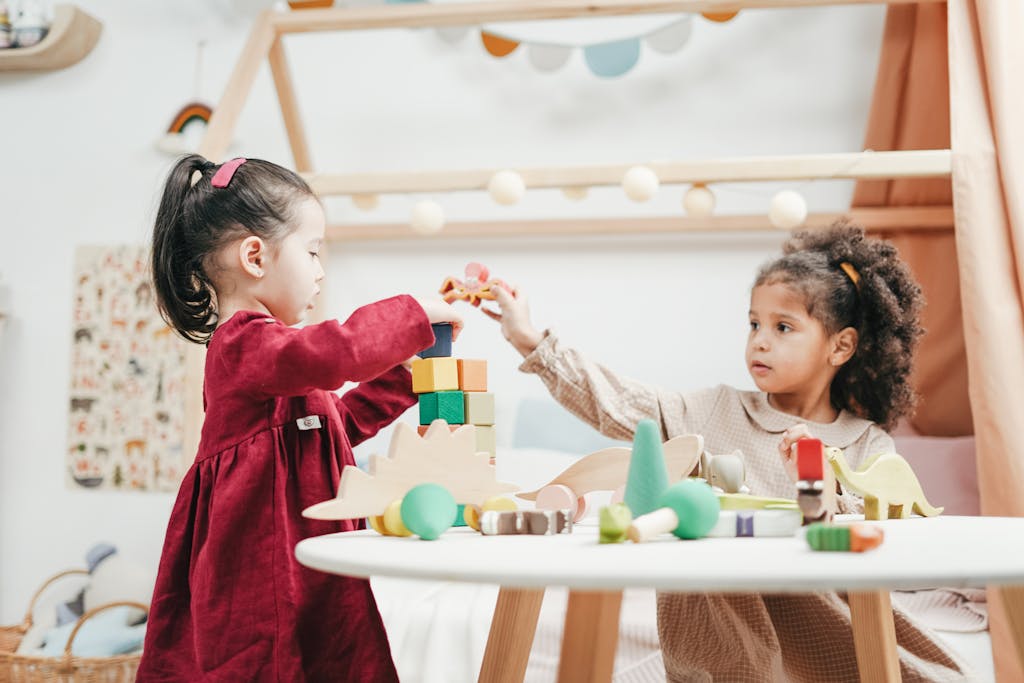
Build engaging lesson plans for preschool that are effective
Preschoolers need short lessons that are fast-paced and fun. Try to keep each lesson between 5-10 minutes long.
Where to start preschool lesson planning
You should always start with the learning objectives and outcomes. Begin with what you want your preschoolers to learn, and then make a plan for how to teach it.
Think of it as starting at the end and working your way back to the beginning.
A peek inside MY process
This is by no means the end-all, be-all way of lesson planning, but it can give you insight into a process that has worked for others.
Mapping out the weekwhile preschool lesson planning
When I sit down to begin lesson planning for the next week (or 2), I take a look at my general yearlong plan to see what needs to be taught at this time and write down the objectives that need to be covered.
Next, I glance over any assessment data I’ve gathered related to the objectives I intend to instruct on. The data will help me determine the level of proficiency the kids already have, and how much practice is needed to master the skill.
Now I look through any curriculum manuals I have and find the activities related to the objectives we’re going to focus on.
Once I find the activities, I can determine how to add my own flair to the lesson (aka, the fun part!)
- Find books to extend learning and deepen understanding
- Make up songs and movement activities
- Use puppets or stuffed animals to make learning exciting
- Authentic practice opportunities and ways for children to show what they’ve learned

Planning specific questions and opportunities for discussions
One of the ways I deepen the learning is by building opportunities to discuss what is being taught. This is especially true for lessons that are focused on increasing knowledge, and not necessarily on skill building.
When I am preschool lesson planning for the week, I write down the questions I want to ask students about the books and videos we will read and watch.
I plan questions for before, during, and after reading or watching a video.
Questions that I ask before reading are intended to activate background knowledge and make predictions about the text. Here are some examples:
- What do you think the title tells us about the story?
- What do you already know about (topic of the book)?
- Where is the story going to take place?
During reading, I plan clarifying questions, questions that bring attention to big ideas, and more prediction questions.
- Why did (character) do that?
- What is going to happen next?
- How would you feel if you were (character)?
The questions I plan to ask after reading are meant to incite deeper thinking and even lead to discussions in which students can talk about their differing opinions. I also want to assess the listening comprehension of my students.
- Which character is your favorite and why?
- What was the author’s purpose for writing this story?
- How would you end the story if you were the author?
Instructional strategies to incorporate in preschool lesson plans
Sit-and-get, lecturing strategies are not particularly effective in teaching young children, but it is a really easy strategy to fall back on if you don’t have a solid plan of how you are going to teach a skill or lesson.
More effective instructional strategies, such as hands-on approaches or cooperative learning structures, don’t come as naturally to teachers.
This is why it is so important to plan out the strategies you will use for each lesson.
Some strategies will require preparation and gathering materials on your part. You will want to have that all planned out so you know exactly what to do before you start teaching the lesson.
A few instructional strategies that are effective are incorporating play, using songs and music, keeping students moving and active, providing hands-on and tactile learning experiences.
When preschool lesson planning, plan to Extend learning in play
The most authentic learning comes through play! Set up play centers that incorporate the themes and skills you are working on so children can apply what they’ve learned while playing.

Here is a quality resource to guide you on your preschool lesson planning journey
I have created a full week of preschool lesson plans just for you, and the best part is that they’re FREE!
Sign up below to get your copy of the First 5 Days of Preschool Lesson Plans.
You can use my plans as a framework to plan your own weekly lessons when you’re done with what I’ve prepared for you.
Sign up for the FREE First 5 Days of Preschool Lesson Plans and comment below!
Leave a comment about your favorite preschool development area to plan for. What are your favorite preschool lesson planning tools?
